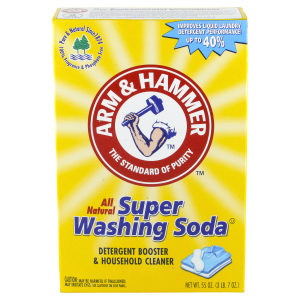Take the suggestion from
@MikeInOr, and use the power of steam cleaning, but with a caution!
You can use all sorts of soapy or kitchen cleaners to help cut into greasy crud, and a steam cleaner with some help from a brass suede brush, or just a old toothbrush, but know that if cleaning up iron, like in my case, a lathe bed, steam cleaning leaves the iron so exposed to oxygen, it will turn orange right before your eyes in minutes, as rust gets going again.
Halt the process in it's tracks, by using the universal cleaner - plain old washing soda. Sodium carbonate. Used since who knows when in everything from laundry to oven cleaning, the stuff is alkaline, which is exactly what you need.
View attachment 427174
Faster than boiling in water, it is not corrosive to steels, but DO NOT let it get on aluminum, nor brass or zinc galvanized stuff. The alkali seems to block the rusting. Some folk use it as de-rusting electrolyte helped by some DC electric current. It takes out the rust, but ceases to act when it is left with the iron. I am unsure what does it, but I do notice that the immediate orange rusting does not seem to happen If it is cleaned with washing soda.
Right now, with some mechanical help from straightforward wire brushing, scrubbing, etc. my method of choice is steam cleaning. It can work OK by itself, but when combined with some washing soda, it becomes unstoppable.


